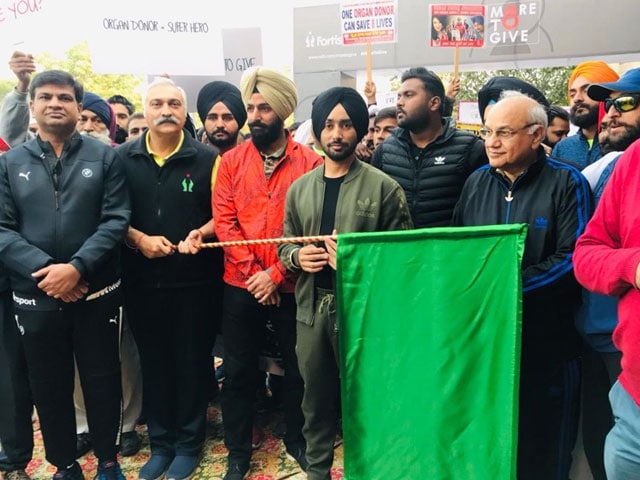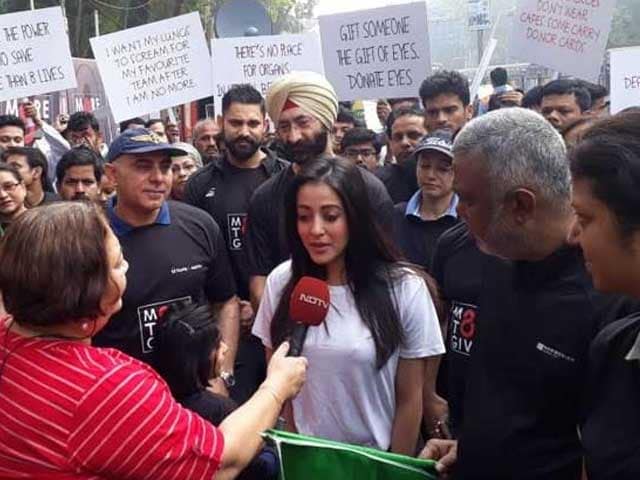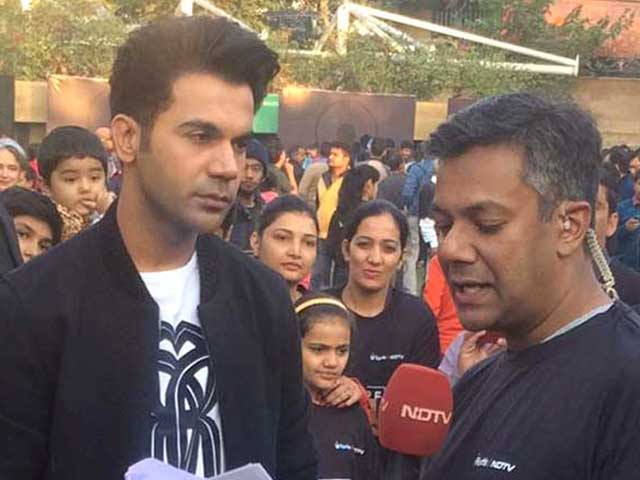“I often found myself thinking that death was better” than the torment of undergoing dialysis and not knowing what lies ahead, says Nirmal Anandani. The 50-year-old underwent dialysis for a period of eight months before his wife donated her kidney to him. He had started to feel like a burden on his family, and would keep crying over his fate.
“He would keep repeating on loop that he won’t survive this”, says Divya Anandani, his wife.
Nirmal was diagnosed with kidney failure. In addition to this, his heart function, which is about 65% in an average person, had dropped to 15%. The only option they had until his heart function improved was dialysis.
He had lost his appetite, stamina and energy, and kept vomiting. He could barely walk; he would become breathless and start panting after taking barely 10 steps. Even when he had to visit the hospital for dialysis, people would either lift him up or steer him in a wheelchair. Weakness had gradually spread throughout his body making him dependent on others.
The dialysis was supposed to enhance the heart function and improve his health. But his condition was deteriorating with each passing day. They were going to one of Agra’s most reputed hospitals for treatment, “but they were just a money-making machine. Their attitude was callous and apathetic”, says 47-year-old Divya.

During one of his dialysis sessions, the lights at the hospital went out, and their power back-up bungled. The dialysis machine kept turning on and off because of which Nirmal’s blood pressure dropped to 80/60 as opposed to the optimal range of 120/80. He was perspiring profusely, and after some time he suddenly went cold. “There was no one around to take care or pay attention to him. Help didn’t arrive until I made a noise”, says Divya. He was immediately admitted to the ICU, and remained there for 10 days. “How could they play with someone’s life like this?”
After this incident, they moved to Delhi for his treatment. Dialysis for three months in the Agra hospital was a complete waste of time and money, both of them echo. “We were paying Rs. 2,800 for each session of dialysis thrice a week”, says Divya, adding that the money could’ve been put to better use.
Moving base entailed making a lot of difficult choices like leaving their behind two children, 17-year-old daughter and 14-year-old son, and not seeing them for the six months. They also left behind their business under the watch of Nirmal’s brother. One of the most hurtful compromises they made was squashing their elder daughter’s dream to pursue higher education abroad. They needed every rupee for the transplant which cost them Rs. 15 lakhs.
The treatment in Delhi improved Nirmal’s health. “Within 2-3 sessions of dialysis I could feel a difference. I was feeling a lot better. My appetite had increased, and soon enough I didn’t need people to carry me around”, he says.
While things were looking up for him as doctors told him that his heart function had increased to 30-35% and he was now fit for a transplant, back in Agra, his brother had sold their business of spices and unrighteously claimed all the money. “I tried to hide this development from Nirmal for as long as I could because this would’ve stressed him out”, says Divya, but it wasn’t long before he learned about it. He wanted to head back home the second he heard it. He was furious. “It was a task to pacify and convince him to stay”, she adds.
The Transplant
Doctors in Agra had told them that chances of him making it through were slim; it would be difficult for his heart to recover. And until that happened, transplant was a far-fetched idea. “We were scared and living under much stress and pressure”, says Divya, hoping and praying for his good health the entire time. “When we were informed that Nirmal was fit for a transplant, all of us heaved a sigh of relief”, she says.
When they were asked to start looking for a donor, Divya was the first in queue to get tested to see if she was a match. And she was! Her blood group is O- which makes her a universal donor.
“All I cared about was my husband’s health”, says Divya, adding that the thought of her health post the transplant didn’t once occur to her.
They were, however, nervous about the transplant procedure. “We went ahead with it with limited information that we received from our doctor and people in similar situations. We could’ve used a little more guidance, but, honestly, a transplant seemed like the only thing that could help him in the long run”, says Divya.
Life After Transplant
While there’s not much change in Divya’s lifestyle except that she needs to avoid gaining and lifting weight, there are number of things Nirmal needs to be mindful of. He needs to avoid crowded, polluted areas and unnecessary physical contact for fear of infections. He also needs to follow a few dietary restrictions as precautions like no spices and junk food. He must only consume homemade food.
Both of them need to visit the doctor for routine check-ups at frequent intervals to ensure that there is no threat to their health.
Nirmal has Divya to thank for a new lease of life. “I would want her to be my wife in every birth”, he says. This is not to say that the inevitable domestic bickering is a thing of the past. As strong as their bond is, “Every time we fight, she asks me to return her kidney. Can you imagine that?” says Nirmal between laughs.











God Bless the Couple.
Long live this couple. May God shower all the blessings on people having gone through these type of unfortunate happenings. Really encouraging.
His wife’s efforts gave her husband a new life
they r like living examle of not loosing hope can lead to desired life.
Always b hope full
Be happy and healthy always. May god bless you always.
May god bless you both
God Bless you both and pls. take care of your health.
Good deeds paid off! You are the luckiest person to get a wife like Divya,you will again prosper in your business as you already have a lucky mascot with you,you should be an example for others who dwell on temporary relationships,your children’s are the luckiest one’s to be blessed with parents like you.
Hats off to Divya for the sacrifice.
All the best!